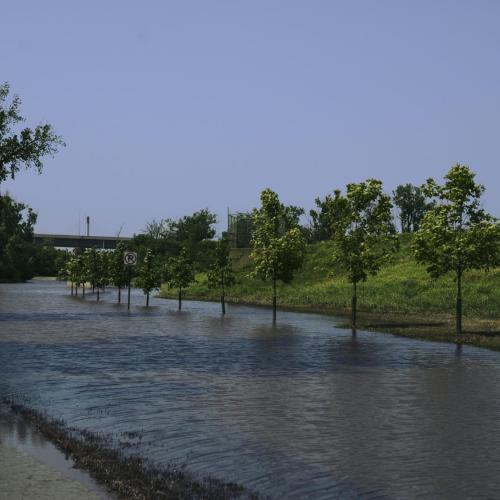The Challenge: The City of Lincoln suffered from an outdated urban drainage stormwater system. City officials were inundated with complaints of localized flooding and wanted to take action. The city was responsible for maintaining the stormwater drainage system, but old pipes plus urban sprawl raised critical questions: which pipes needed to be fixed, how could drainage problems be identified, how should potential repair projects be prioritized, and how could these projects be financed?
The Solution: Our Water Resources team was hired to assist in several key ways: to develop a proactive prioritization methodology, identify potential stormwater Capital Improvement Program (CIP) projects, and enhance the city’s stormwater database. The team created an Urban Drainage Preliminary Engineering Study which produced cutting edge prioritization methodology for stormwater improvements (over 300 potential projects were identified in total). Through the study and high-level hydrologic and hydraulic modeling, the team located and prioritized urban drainage system deficiencies for minor and major storm events for 17 selected drainage basins, generated citywide GIS coverage of the model results, and prepared a drainage report for each basin.
Project Benefits: With a comprehensive and data-driven study, the city was equipped with a cost-effective approach to prepare proactive stormwater CIP projects. With projects ranked by priority and long-term impact, the city can be sure taxpayer dollars are spent on most necessary repairs. The study, project prioritization, and database justify stormwater program financing needs to elected officials and the public, allowing the city to make the case for bonds and project funding. Urban drainage preliminary engineering reports and studies are replicable in any city, because they rely on H&H modeling and GIS -- mobile and dynamic tools.


